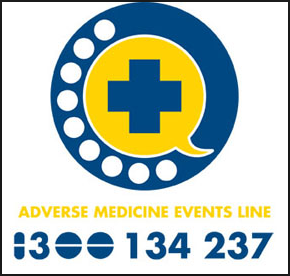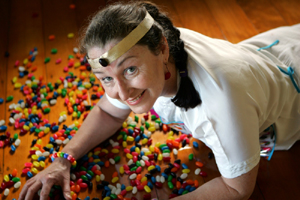Herbal medicines have been defined as “an unknown dose of an ill-defined drug, of unknown effectiveness and unknown safety“.
Now under the spotlight by regulators in the US, the UK, Canada and here in Australia, do they work, are they safe and do you even get what you pay for?
More than 60% of Australians spend in excess of $1bn per year on supplements promoted as ‘natural’ alternatives to prescription drugs. With an annual revenue of $3.5bn, the complementary medicine (CM) industry is expected to grow to $4.6 bn in 2017-2018. CM’s include herbal medicines, where sales grew by 8 per cent in 2013.
Part of Aboriginal, Chinese and Ayurvedic (Indian) traditional medicines, herbal medicines are exclusively plant-based. The few scientifically proven herbal extracts are well known and have been incorporated into conventional medicine. These include aspirin (willow bark) and digitalis (foxglove). For chemotherapy, docetaxel (Taxotere), was first made from the needles of the European yew tree and paclitaxel (Taxol) was made from the bark of the Pacific yew tree. While both drugs are now synthesised, the needles are still collected and used as part of the process of making the pure medications.
Newly discovered herbal medicines which show promise are scientifically tested. The experimental drug EBC-46, for example, produced from the seeds the Blushwood tree, has been successful in pre-clinical trials in curing solid cancer tumours. Human trials are planned once regulatory approvals are in place.
Do they work? A committee headed by the UK’s Deputy Chief Medical Officer recently found that there was “insufficient evidence” that herbal medicines worked. His working party, which looked at both safety and efficacy, decided not to regulate herbalist and Traditional Chinese Medicine (TCM) practitioners, because it would only “confer an inappropriate level of legitimacy on herbal practice which was poorly supported by scientific evidence”.
Aboriginal & Torres Straight Island Health Practice and TCM practitioners are registered with the Australian Health Practitioners Regulation Agency (AHPRA) and are self-regulated. Naturopaths are not registered. In 2009. an attempt to establish their own national register failed after it was felt that it would misled the public “into thinking their treatments have been proven effective”.
The recent National Health & Medical Research Council (NHMRC) investigation found that there was “little in the way of systematic reviews of herbalism as a practice” and that the effects of naturopathic practice on a range of chronic diseases were uncertain.
Are they safe? Herbal medicines are chemicals and come with risks. They are commonly marketed on the Internet, and often sold as food supplements, beyond the control of regulatory agencies. Many different herbal and dietary supplements have been reported to cause liver injury and death. A 2105 study concluded that herbal extracts were no safer than conventional medications. Liver failure has been associated with women who use Black Cohosh, which, in a randomized controlled trial (RCT), showed little potential for the claimed relief of menopausal symptoms. St John’s Wort, used for depression, “negatively interacts with a long list of prescribed medications“.
Chinese ‘medicines’ might not be safe and/or legal. In 2012, scientists from Murdoch University examined the DNA signatures of animals and plants contained within 15 Chinese ‘medicines’. They found that their sample “routinely contained undeclared plants and animals, some of which are illegal”.
Do you get what you pay for? Some herbal ‘medicines’ do not even contain the listed ingredients. In 2014, the Therapeutic Goods Administration completed reviews of 181 products that were targeted for investigation and 41 which were picked randomly. They found that 54 per cent breached regulatory rules. A further 26% of reviews could not be completed for various reasons including the manufacturer’s withdrawing the product from the market. Most of the problems related to either evidence or labelling.
In Canada, a study using DNA sequencing of 44 herbal ‘medicines’ from 12 companies, found they were of poor quality, with considerable ingredient substitutions, contaminations and fillers. The New York Attorney General’s department also used DNA sequencing to test the ingredients in six types of herbal ‘medicines’, looking at different brands from four of the largest US-based supplement retailers. They found that 79% of them did not contain the primary ingredient listed on the label. Many of them contained other plant material, including plants that might cause allergic reactions.
In Australia, more than 90% of new herbal ‘medicines’ are only scrutinised for compatibility with a number of key rules in the online application process. There is no pre-market scrutiny of the actual product specification, label, instructions, packaging, advertising or evidence.
With more than $1m spent weekly on CM advertising, it is not surprising that many people believe that ‘natural’ products are effective and safe. Just because a product is derived from nature, works in laboratory mice, is in the media or is being recommended by a celebrity, does not mean that it will not harm you.
Be kind to your liver – if you want to try herbal ‘medicine’, why not, before parting with your cash, phone the Adverse Medicine Events (AME) line, (they provides “independent, accurate and evidence-based information” on all medicines), or ask your doctor or pharmacist for the evidence?


3 responses to “The truth about herbal ‘medicines’”
The easiest way to convince yourself that herbal medicines don’t work is to check “herbs at a glance”: https://nccih.nih.gov/health/herbsataglance.htm
This is the branch of US National Institutes of Health that evaluates complementary and alternative medicine (CAM). It is nothing if not sympathetic to CAM. It has spent something like $2 billion, but failed to come up with a single useful treatment.
If you click on any of the herbs in “herbs at a glance” and check the “what the science says” section, you’ll see that even NCCIH doesn’t claim they are useful.
Herbal medicine is personalized prescription. Properly used is far better than chemical pills.
check out on http://www.sellingsickness.com
You ARE aware that every element on the periodic table is a chemical, and that the condition of “zero chemicals” is also known as “the vacuum of space”?
If you combine the two elements Oxygen and Hydrogen, you get the chemical “Dihydrogen Monoxide”, better known by its trade name, “Water”. Yes, it can be toxic: the condition of water intoxication interferes with the transmission of electrical signals across your nervous system, which can lead to a potentially fatal cardiac arrhythmia.
Herbal medicine is just “chemicals without dosage control”.